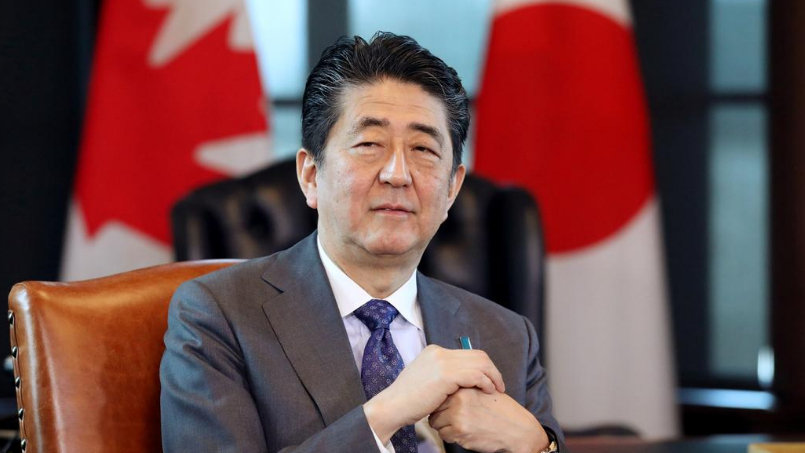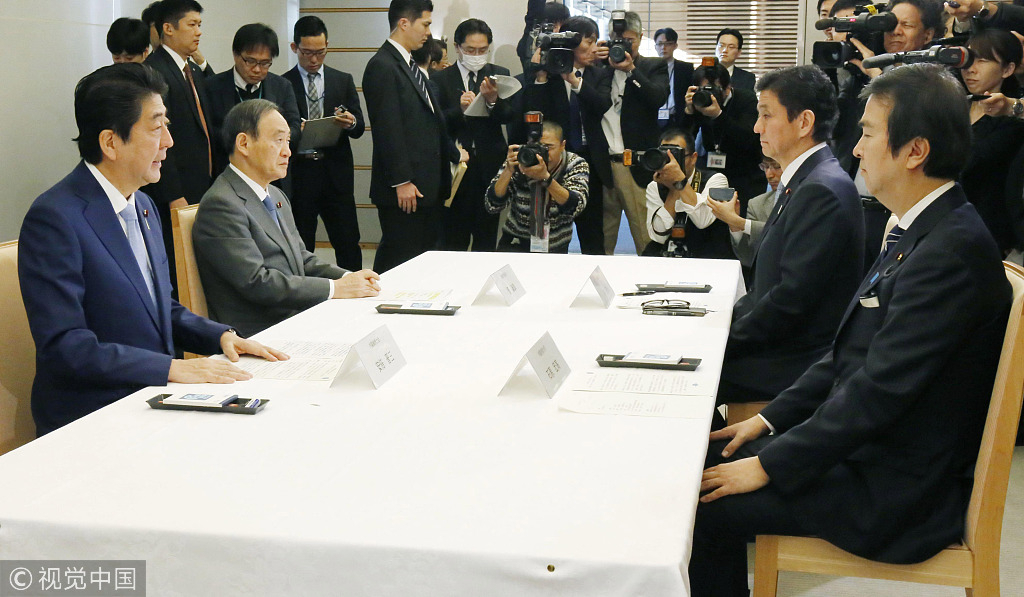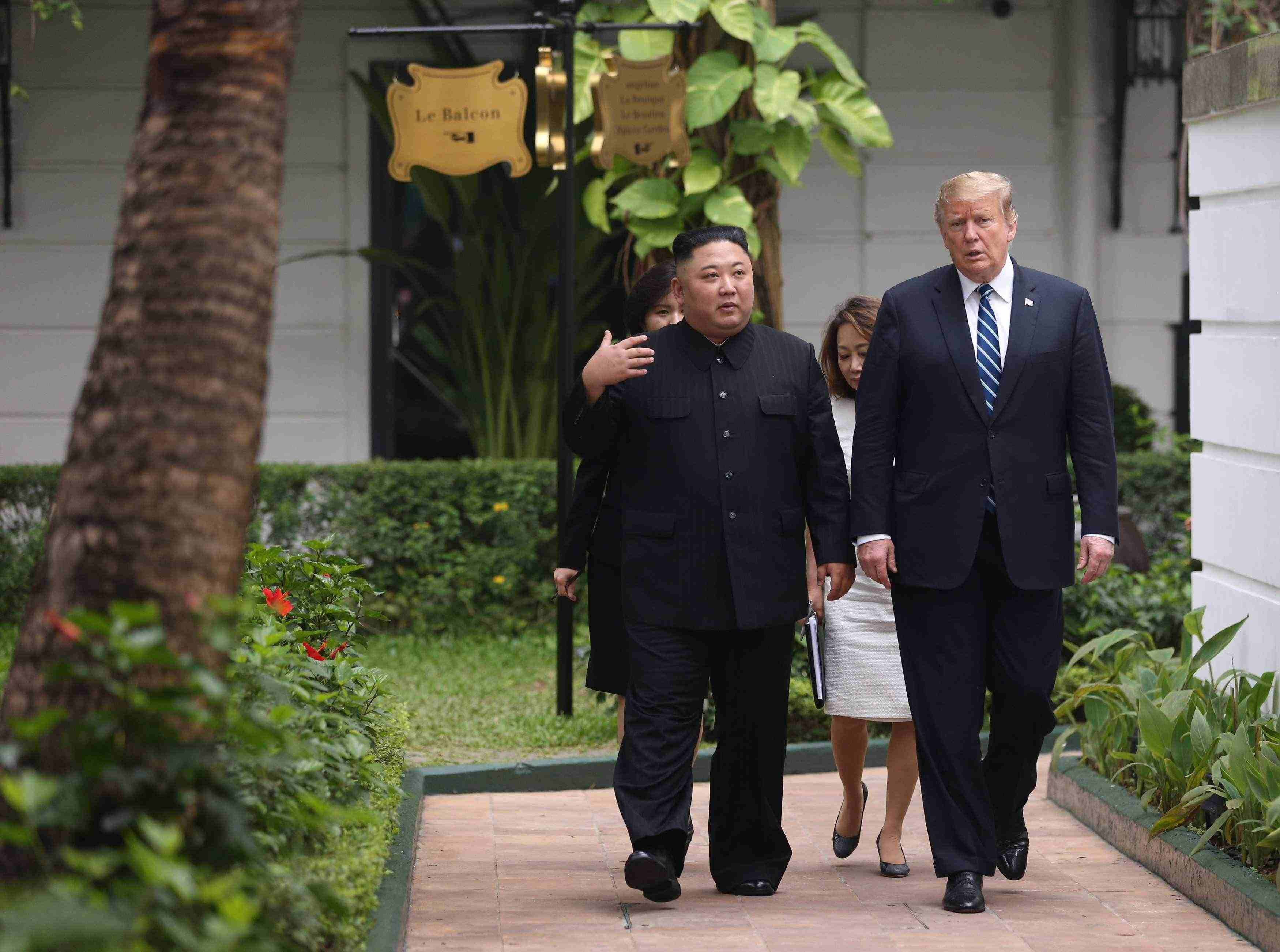
Opinion
21:29, 09-May-2019
Motivations for a Kim-Abe summit
Chris Deacon

Editor's Note: Chris Deacon is a postgraduate researcher in politics and international relations at the University of London and previously worked as an international commercial lawyer. The article reflects the author's opinion, and not necessarily the views of CGTN.
In the last week, Japanese Prime Minister Shinzo Abe has repeated his desire to hold a summit with Democratic People's Republic of Korea (DPRK) leader Kim Jong Un. Recent statements coming out of the DPRK have suggested that Kim is also open to a meeting.
A summit in the near future, therefore, seems a major possibility – so what are the motivations for both men in seeking a meeting now?
For Abe, there has been a fairly dramatic shift in approach. Speaking to the Sankei newspaper last week, the Japanese Prime Minister stated that he would not insist on any preconditions for the talks with Kim.
He further explained that he hoped to talk to the DPRK leader "with an open mind" in order to "break the shell of mutual distrust" between the two countries.
The main block on a summit up to this point from Abe's perspective has been the so-called "abduction issue."
In 2002, then DPRK leader Kim Jong Il confirmed for the first time that his country had abducted 13 Japanese citizens in the late 1970s and early 1980s. The admission came as then Japanese Prime Minister Junichiro Koizumi flew to Pyongyang for an unprecedented summit between the two countries, hoping to improve – and eventually normalize – relations.

Japanese Prime Minister Shinzo Abe (L) speaks at a meeting in Tokyo with Cabinet ministers on the issue of DPRK abductions of Japanese nationals, December 2, 2016. /VCG Photo
Japanese Prime Minister Shinzo Abe (L) speaks at a meeting in Tokyo with Cabinet ministers on the issue of DPRK abductions of Japanese nationals, December 2, 2016. /VCG Photo
Five of these abductees and their families were eventually able to return to Japan after further talks between the two leaders, but the DPRK asserted that the remaining eight had died.
Many in Japan, however, did not believe the DPRK's version of events and contend that the remaining abductees are still alive. The families of these unreturned abductees have formed campaign groups, fighting hard to keep the issue high up the political agenda. Some of these family members were in the United States again last week to try to keep up publicity for their cause.
Abe – who has taken the abduction issue on as a somewhat personal mission – has, for some time, tied any summit with Kim to progress (from Japan's perspective) on this issue. It is this major requirement that Abe appears to have dropped, opening the way to a summit.
What has changed Abe's mind? Firstly, there is his legacy to consider. Abe only has two more years as prime minister due to his party's leadership limits and he is clearly bent on shaping a positive legacy for himself, particularly with regards to foreign policy. He seems determined that this should involve a meeting of some kind with Kim Jong Un.
This determination has been heightened by the current political dynamics surrounding the Korean Peninsula. Kim has now met U.S. President Donald Trump twice; he has met Chinese President Xi Jinping multiple times; as well as Republic of Korea (ROK) President Moon Jae-in. Most recently, he has even met Russian President Vladimir Putin.

DPRK leader Kim Jong Un (L) and U.S. President Donald Trump (R) take a stroll in the garden of the Sofitel Legend Metropole hotel during their second summit in Hanoi, Vietnam, February 28, 2019. /Reuters Photo
DPRK leader Kim Jong Un (L) and U.S. President Donald Trump (R) take a stroll in the garden of the Sofitel Legend Metropole hotel during their second summit in Hanoi, Vietnam, February 28, 2019. /Reuters Photo
Who has been left out? None other than Shinzo Abe. Just in the same way that Putin wanted to show his and his country's continued importance in regional geopolitics, so does Abe. As part of his policy of Japan becoming more "pro-active" in the region, to miss out on such an opportunity would be a mistake, in Abe's view.
This reality also ties in with Kim Jong Un's motivations for holding a summit with Abe. The more regional leaders the DPRK leader meets with, the more states become engaged in a peace process that Kim does not want to end any time soon.
With Trump's unpredictability and the next U.S. presidential election coming in 2020, Kim is no doubt aware that it would not be unthinkable for there to be a return to the "fire and fury" rhetoric of two years ago.
The more powerful leaders that are invested in negotiations and diplomacy with the DPRK, however, the less likely the U.S. to countenance any aggressive action. This could be a valuable insurance policy for Kim if talks with both the U.S. and the ROK continue to stall.
Both men, therefore, have clear motivations to plan a summit in the coming months. While this may have seemed unlikely not so long ago, few among us would have predicted a U.S.-DPRK summit (let alone two) either. We should have learnt, by now, to expect the unexpected in contemporary world politics.
The chances seem high that Abe and Kim will continue this pattern, if only to serve both of their own personal interests.
(If you want to contribute and have specific expertise, please contact us at opinions@cgtn.com.)

SITEMAP
Copyright © 2018 CGTN. Beijing ICP prepared NO.16065310-3
Copyright © 2018 CGTN. Beijing ICP prepared NO.16065310-3